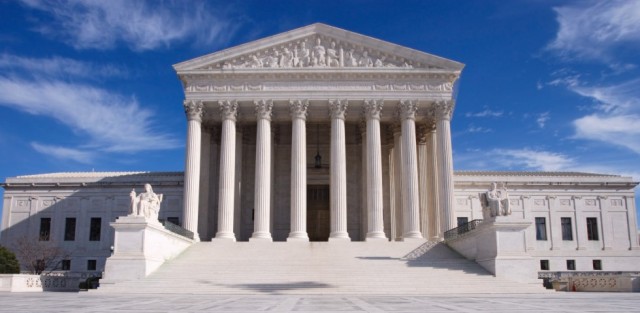What’s the harm in inaccurate personal information?

On November 2, the U.S. Supreme Court heard oral arguments in Spokeo, Inc. v. Robins, a case that stems from complaints by a consumer (Robins) that Spokeo, an online “people search engine” that aggregates information about individuals from public sources, published inaccurate information about him. The argument before the Court focused on a legal question about whether the standing exists for someone who has not suffered demonstrable “real world” harm to bring a lawsuit against an entity that has violated the law. In this particular case, Robins claims that Spokeo violated the Fair Credit Reporting Act (FCRA) when it published multiple pieces of erroneous information about him. The statutory regulations under the FCRA (15 U.S.C. §1681) require consumer reporting agencies to “follow reasonable procedures to assure maximum possible accuracy of the information concerning the individual” (§607(b)) on which they report. The arguments before the Court neither address nor dispute whether Spokeo is a credit reporting agency (it is, at least for purposes of establishing FCRA jurisdiction over the company) or whether it did, in fact, publish inaccurate information about Robins (it did). Instead, the case centers on whether the lawsuit is allowable at all, since Robins can only point to evidence that Spokeo violated FCRA rules, but cannot show that he suffered any injury or damage because of the mistaken information. Generally speaking, individuals or entities with rights of action related to, for instance, claims of negligence, must prove actual harm in order to bring suit. This is why victims of data breaches are typically unable to sue the companies that lost their data for damages related to things like a increased future likelihood that they will suffer identity theft. Those who actually experience identity theft can sue for damages, but not until they actually incur harm.
The FCRA does include statutory penalties for credit reporting agencies that knowingly violate the provisions in the law, although the limit of liability is capped at $2,500 per violation. The problem for Robins is that the ability to seek these civil penalties rests with the Federal Trade Commission, not with individuals like him who believe (or can provide evidence) of statutory violations. Robins instead has to establish that he even has a right of action, which is the core issue the Supreme Court is considering. The Court has taken up this issue before, including in First American Financial v. Edwards, which the Court dismissed without explanation and without issuing a ruling on the matter of standing, instead simply stating that it should not have taken the case in the first place. The case has drawn attention (and a large volume of amicus briefs on both sides) far beyond the realm of credit reporting, in large part because although there is ample precedent in tort law that plaintiffs need to demonstrate actual standing in order to sue for damages, showing harm has historically not be required for legal standing under the Constitution, particularly when Congress explicitly includes legal remedies for statutory violations. During oral argument, some justices seemed willing to accept that having inaccurate information published about a person could constitute harm, which would allow Robins to proceed with the lawsuit, but sidesteps the key question of standing. What’s unfortunate about this case is that it in no way addresses very real questions about responsibility for the establishment and maintenance of data integrity.
Under FCRA regulations, consumers have the right to dispute information reported by FCRA-covered companies if they believe the information to be inaccurate. In most cases – even with the much larger and better-known major credit reporting agencies like Equifax, Experian, and TransUnion – the reporting entities do not create the information they hold about consumers, but they receive and aggregate information from numerous third party sources. This, perhaps obviously, presents a challenge when the information collected and reported by one of these companies is wrong. The law requires the credit reporting agencies to employ “reasonable procedures” to ensure not only the accuracy and relevance of consumer information, but also its protection from unauthorized disclosure (confidentiality) and its proper use. As originally enacted, consumers who wanted to dispute something in their credit reports had to take the issue up with the reporting agency itself; Congress amended the regulations in 2003 with the Fair and Accurate Credit Transactions Act (FACTA) that enabled consumers to dispute information directly with creditors or other entities that are the source of the information the credit reporting agencies receive and report. The FTC subsequently issued guidelines to entities that furnish information to credit reporting agencies that place a substantial burden on them to report only accurate information. These rules would seem to put the onus on furnishers of information, rather than the credit reporting agencies, since under current regulations the responsibility for providing accurate information rests with the furnishers. It makes sense that a company like Spokeo, if the information it aggregates comes from such entities subject to the FTC regulations, would presume that the information it receives is accurate. It is much less clear in the regulations to what lengths a credit reporting agency must go to demonstrate that it has followed “reasonable procedures” to ensure information accuracy.
 SecurityArchitecture.com
SecurityArchitecture.com
